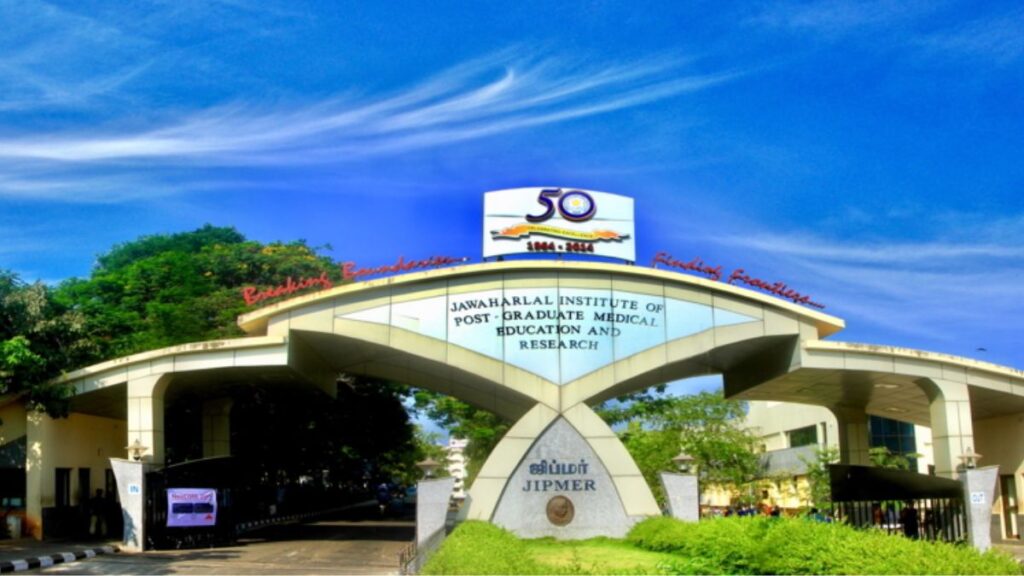
IMA, FAIMA, and Doctors’ Associations Slam Government’s “Unscientific” Move Toward Mixopathy
New Delhi, May 30: The Union Government’s plan to launch India’s first integrated MBBS-BAMS course at JIPMER, Puducherry, has ignited strong protests from the medical fraternity across the country. The initiative, which seeks to combine modern allopathic medicine with Ayurveda in a single academic program, has been denounced by major doctors’ associations as “regressive,” “unscientific,” and potentially dangerous for public health.
IMA Demands Immediate Withdrawal of Proposal
The Indian Medical Association (IMA) has led the opposition, demanding that the Centre withdraw the integrated MBBS-BAMS course, calling it a threat to the integrity of both systems of medicine. In a strongly worded statement issued on May 30, IMA criticized the concept as an “irreversible catastrophe” and warned that it could push India’s healthcare system back by a century.
Highlighting the success of modern medicine in improving India’s life expectancy—from 32 years in 1947 to over 70 today—IMA credited vaccinations, antibiotics, and advancements in chronic disease management for the progress. It further warned that blending incompatible systems would lead to “hybrid doctors” lacking the required expertise in either stream.
“Let all systems retain their pristine purity. Refrain from producing hybrid doctors who will be only qualified quacks,” the association stated, appealing to both the public and Ayurvedic practitioners to resist the move.
FAIMA, UDF, JUDA Also Voice Strong Opposition
The Federation of All India Medical Association (FAIMA), United Doctors Front (UDF), and Telangana Junior Doctors Association (T-JUDA) have also expressed alarm over the proposed course.
Dr. Rohan Krishnan, Chief Patron of FAIMA, dismissed the plan as a “flop idea,” warning that it would encourage mixopathy—the unscientific blending of unrelated medical systems—and promote confusion and malpractice.
FAIMA President Dr. Akshay Dongardive added that healthcare is not an experiment and that the government’s attempt to produce dual-trained doctors would compromise patient safety.
Dr. Aruna Kumar, National General Secretary of UDF, emphasized that Ayurveda and allopathy are fundamentally different in their principles and practice, and merging them academically “lacks scientific basis and threatens the credibility of Indian medical education.”
Young Doctors Raise Global Concerns
The IMA Junior Doctors Network (JDN) also voiced concerns over the impact of the integrated course on international recognition of Indian degrees and research opportunities for young doctors.
Dr. Indranil Deshmukh, National Secretary of the IMA JDN Standing Committee, warned that unclear treatment protocols and medico-legal uncertainties could jeopardize patient safety. Dr. Karan Juneja, IMA JDN National Convenor, added that such a move could “create confusion among patients” and erode trust in the healthcare system.
T-JUDA: “Let Science, Not Politics, Guide Health Policy”
In a detailed press release, T-JUDA termed the proposal “deeply unfortunate,” arguing that India should not repeat China’s failed experiment of integrating Traditional Chinese Medicine with modern medicine. They cited India’s robust medical education infrastructure, global recognition of Indian doctors, and the WHO-compliant doctor-to-population ratios in southern states as evidence of why such integration is unnecessary and potentially harmful.
“JUDA appeals to the nation and Ayurvedic practitioners to unite in resisting this policy for the health and future of coming generations. Let every system thrive in its own domain,” the association urged.


